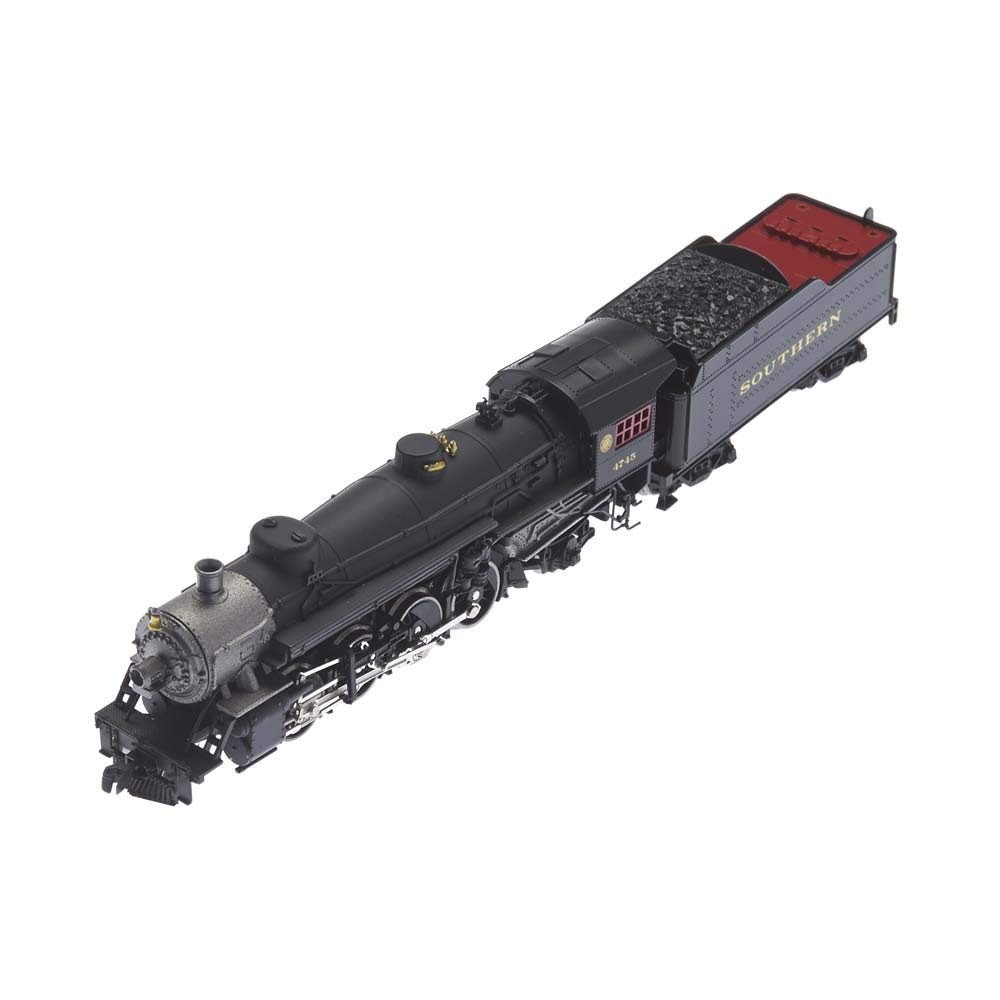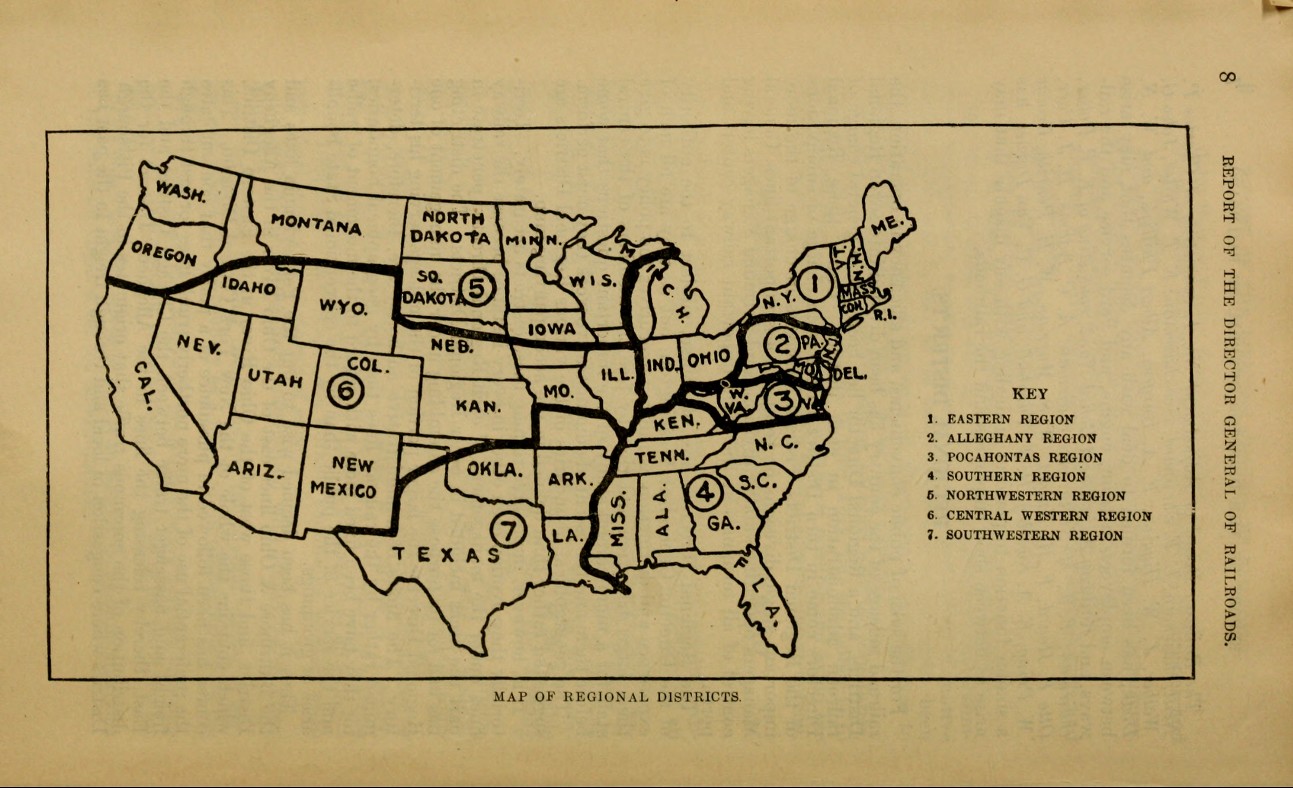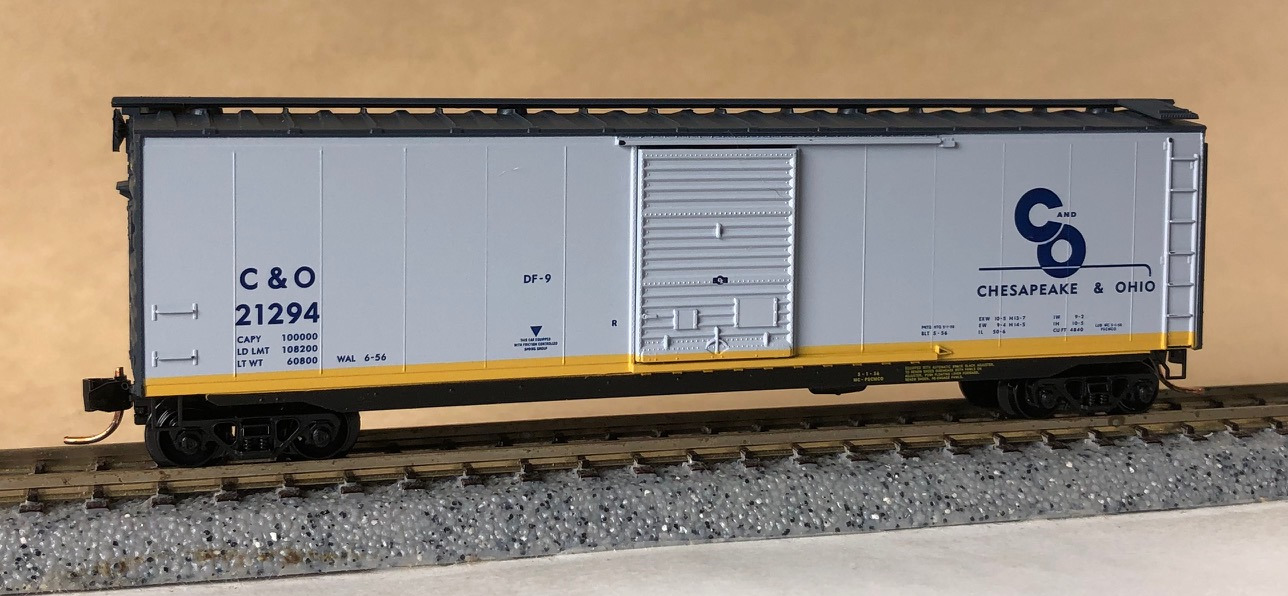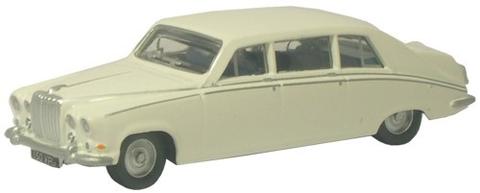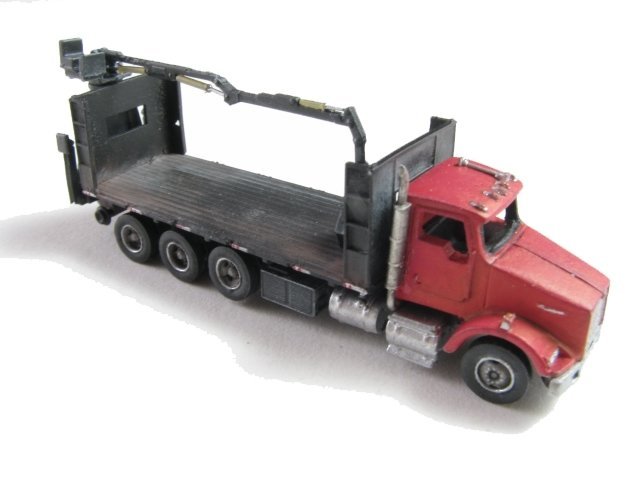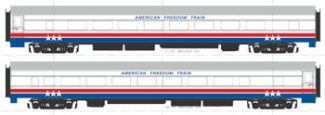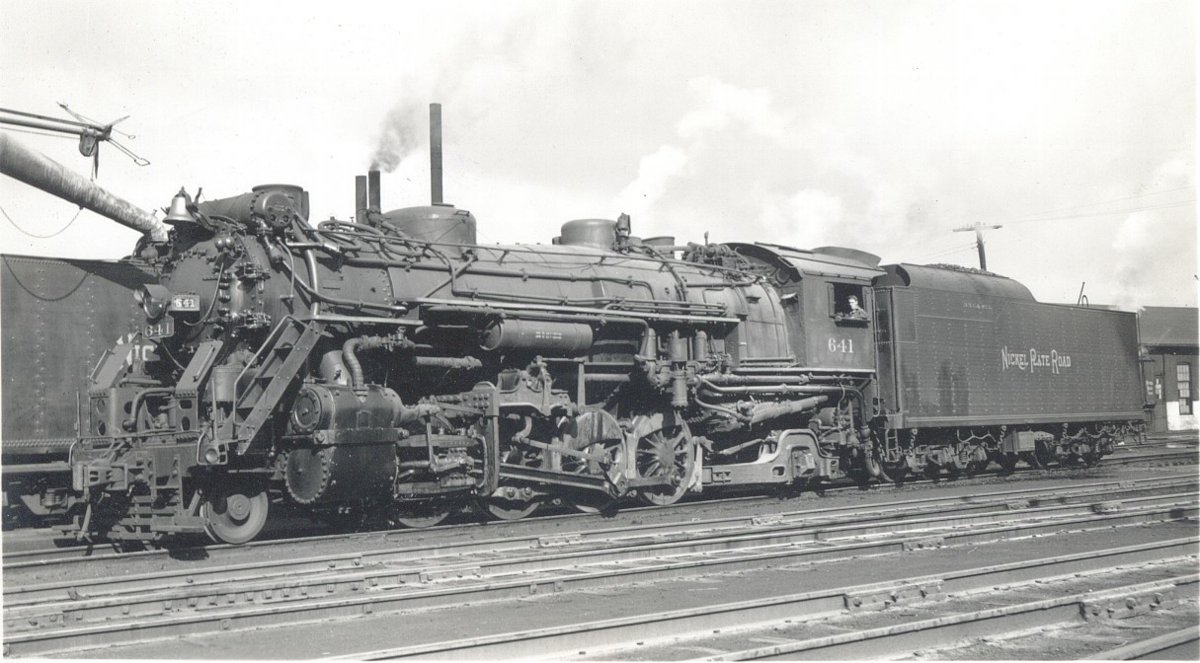Specific Item Information: USRA 2-8-2 MIKADO w/Std Coal Tender
Model Information: Model Power introduced this model in 2002. They are manufactured in Korea and feature die-cast bodies. This makes them fairly solid. Unlike many steam engines they also are very DCC-Friendly. The fall short of being fully DCC-Ready because they do not support drop-in decoders and instead require some manipulation of wiring. They run very well and can pull a lot of cars. The shell details are excellent
Unfortunately, the design is not great for running and parts of the lower shell can get mangled when they hit rough patches of track (especially turnouts). This can effectively put one of these out of commission. For this reason we advise buying these from a certified dealer because if you have to return them for repairs you will need the documentation.>
Unfortunately, the design is not great for running and parts of the lower shell can get mangled when they hit rough patches of track (especially turnouts). This can effectively put one of these out of commission. For this reason we advise buying these from a certified dealer because if you have to return them for repairs you will need the documentation.>
DCC Information: It is pretty easy to add DCC to this engine. However, it is not DCC-Ready as you need to splice in a decoder inside the tender. Not a lot of work, but not as nice as a drop-in decoder swap.
Prototype History: The Heavy Mikado was "conceived" under the auspices of the United States Railway Administration (USRA), an agency established during WWI to regulate the railroad industry during the war.
One of the first undertakings of the USRA was to develop locomotive (and rolling stock) designs that the railroads could share.
This "common design" program was highly successful in streamlining production, and many USRA engines were used long after the war was over, essentially "outliving" the agency that conceived them.
The 2-8-2 is a railroad steam locomotive that has one leading axle followed by four powered driving axles and one trailing axle. This configuration of steam locomotive is most often referred to as a Mikado, or shortened to just "Mike". The USRA ultimately created 12 different steam locomotive designs, including both the Heavy Mikado and Light Mikado. Both the Light and Heavy Mikado used the same 63" drivers and running gear, but the Heavy Mike had a fatter boiler and put out more pounds on the drivers. This resulted in a more powerful locomotive.
Under the USRA's watch, 233 Heavy Mikados were built. Including copies built later, the total number of Heavy Mikes was 957 units, purchased originally by 23 different railroads, primarily in freight service. Some Mikado steam engine are still in service today, employed mostly for tourist or railfan trips.
The 2-8-2 is a railroad steam locomotive that has one leading axle followed by four powered driving axles and one trailing axle. This configuration of steam locomotive is most often referred to as a Mikado, or shortened to just "Mike". The USRA ultimately created 12 different steam locomotive designs, including both the Heavy Mikado and Light Mikado. Both the Light and Heavy Mikado used the same 63" drivers and running gear, but the Heavy Mike had a fatter boiler and put out more pounds on the drivers. This resulted in a more powerful locomotive.
Under the USRA's watch, 233 Heavy Mikados were built. Including copies built later, the total number of Heavy Mikes was 957 units, purchased originally by 23 different railroads, primarily in freight service. Some Mikado steam engine are still in service today, employed mostly for tourist or railfan trips.
Road Name History: 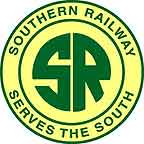 The Southern Railway (reporting mark SOU) (also known as Southern Railway Company) was a US class 1 railroad that was based in the Southern United States. It was the product of nearly 150 predecessor lines that were combined, reorganized and recombined beginning in the 1830s, formally becoming the Southern Railway in 1894.
The Southern Railway (reporting mark SOU) (also known as Southern Railway Company) was a US class 1 railroad that was based in the Southern United States. It was the product of nearly 150 predecessor lines that were combined, reorganized and recombined beginning in the 1830s, formally becoming the Southern Railway in 1894.
At the end of 1970 Southern operated 6,026 miles (9,698 km) of railroad, not including its Class I subsidiaries AGS (528 miles or 850 km) CofG (1729 miles) S&A (167 miles) CNOTP (415 miles) GS&F (454 miles) and twelve Class II subsidiaries. That year Southern itself reported 26111 million net ton-miles of revenue freight and 110 million passenger-miles; AGS reported 3854 and 11, CofG 3595 and 17, S&A 140 and 0, CNO&TP 4906 and 0.3, and GS&F 1431 and 0.3
The railroad joined forces with the Norfolk and Western Railway (N&W) in 1982 to form the Norfolk Southern Corporation. The Norfolk Southern Corporation was created in response to the creation of the CSX Corporation (its rail system was later transformed to CSX Transportation in 1986). The Southern Railway was renamed Norfolk Southern Railway in 1990 and continued under that name ever since. Seven years later in 1997 the railroad absorbed the Norfolk and Western Railway, ending the Norfolk and Western's existence as an independent railroad.

At the end of 1970 Southern operated 6,026 miles (9,698 km) of railroad, not including its Class I subsidiaries AGS (528 miles or 850 km) CofG (1729 miles) S&A (167 miles) CNOTP (415 miles) GS&F (454 miles) and twelve Class II subsidiaries. That year Southern itself reported 26111 million net ton-miles of revenue freight and 110 million passenger-miles; AGS reported 3854 and 11, CofG 3595 and 17, S&A 140 and 0, CNO&TP 4906 and 0.3, and GS&F 1431 and 0.3
The railroad joined forces with the Norfolk and Western Railway (N&W) in 1982 to form the Norfolk Southern Corporation. The Norfolk Southern Corporation was created in response to the creation of the CSX Corporation (its rail system was later transformed to CSX Transportation in 1986). The Southern Railway was renamed Norfolk Southern Railway in 1990 and continued under that name ever since. Seven years later in 1997 the railroad absorbed the Norfolk and Western Railway, ending the Norfolk and Western's existence as an independent railroad.
Brand/Importer Information: Founded in the late 1960's by Michael Tager, the 3rd generation business specializes in quality hobby products serving the toy and hobby markets worldwide. During its 50 years of operation, Model Power has developed a full line of model railroading products, die-cast metal aircraft, and die-cast metal cars and trucks.
In early 2014, Model Power ceased its business operations. Its extensive portfolio of intellectual property and physical assets are now exclusively produced, marketed, sold, and distributed by MRC (Model Power, MetalTrain and Mantua) and by Daron (Postage Stamp Airplanes and Airliner Collection).
In early 2014, Model Power ceased its business operations. Its extensive portfolio of intellectual property and physical assets are now exclusively produced, marketed, sold, and distributed by MRC (Model Power, MetalTrain and Mantua) and by Daron (Postage Stamp Airplanes and Airliner Collection).
Item created by: CNW400 on 2023-02-06 09:18:35. Last edited by CNW400 on 2023-02-06 09:18:36
If you see errors or missing data in this entry, please feel free to log in and edit it. Anyone with a Gmail account can log in instantly.
If you see errors or missing data in this entry, please feel free to log in and edit it. Anyone with a Gmail account can log in instantly.


